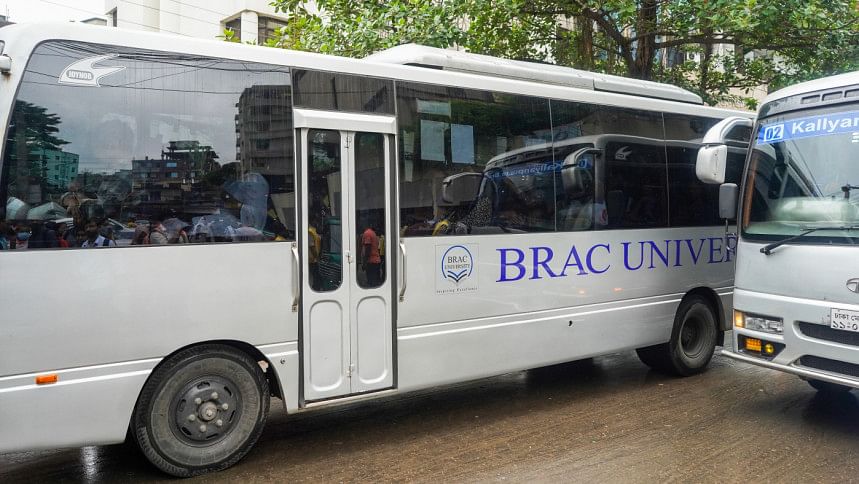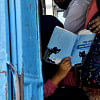Lack of institutional transportation: A nightmare for private university students

Of the many plights students, university students particularly, are having to face today, transportation remains a recurring issue. Commuting has always presented itself as a set of multifaceted issues for students in private universities. Over the last few months, however, these issues have come up time and again. One thing is clear: the roads are far less friendly to daily commuters. With reckless driving, road accidents, and cases of attacks and harassment on the rise, those who have to travel long distances using public transportation have to deal with a lot of different issues. The big question, then, is to wonder if universities are taking any steps to help their students. While the issues surrounding commuting are hardly something that universities can completely deal with all by themselves, many students argue that their respective universities have certain roles to play here.
Should all private universities provide institutional transportation to their students?
Scroll down to see what our readers have to say!
Abrar Azim*, a fourth-year student at North South University (NSU) commuting from Eskaton, shares his experience, "Every day, my commute either requires me to change buses at least once since there are no direct bus routes, or I have to pay exorbitant amounts for an Uber or a CNG. Neither of these are feasible in the long term and this holds true especially for buses. Buses have always been reckless, but nowadays it feels like they do whatever they want. Commuting in the mornings is the worst. I almost had accidents on two different occasions because the bus driver dropped me off in the middle of a busy road."
The safety of students has, thus, become a huge concern. It was merely a few months ago when an employee from NEXT Ventures was killed in a fatal collision against a bus as she was trying to cross the road. Regardless of how much time has passed, these stories, more of which have surfaced since, continue to haunt daily commuters. Despite the Road Safety Movement that pervaded the country in 2018, little – if anything – has been done to reshape our roads. As such, it is imperative to take the question of their safety seriously.
Another side to this is, of course, the factor of cost. For students, most of whom operate with extremely limited budgets, the rising costs have proven to be of grave concern. This rising cost has also diffused into transportation services, where the fare has seen an increase. Even without the increase in fare, it needs to be noted that for many, affording convenient and comfortable transportation on a daily basis can be very difficult.
Raya Adiba Ahmed, a third-year student at International University, Bangladesh (IUB), shares her daily experience commuting from Shantinagar to Bashundara Residential Area.
"Instead of a CNG or an Uber, I usually take a bike, which comes with its own set of problems. However, given how costly the fare can get, especially during rush hours, it's just not feasible to spend that much on commuting alone. Buses are also not an option I can consider, as I've had multiple terrible experiences while trying to commute using the bus. So really, I'm out of options," she says.
However, even with the exorbitant fare, many choose to take an Uber or a CNG simply due to it being more convenient and safe. Safety has become a topic of considerable interest, and the last couple of months have shown that no one, not even students, is safe out on the roads.
Narmin Hossain*, a third-year student at NSU commuting daily from Shyamoli, speaks out about this, "After hearing news of a student's death near Kuril, I had no option other than opting for CNG or Uber services. Nowadays, I mostly commute using ride-sharing groups where three to four people split the bill. Even then it's a bit expensive on some days when the weather conditions aren't favourable. However, the ride-sharing experience has, overall, been very safe for me despite its inconveniences."
With all the problems discussed and put to light, the big looming question now remains: what can we expect universities to do about this? In fact, what are students expecting from their respective universities?
For students, their safety is their primary concern. As Raya states, "Having transportation services provided by the university not only reduces the problem associated with looking for transportation but also feels a lot safer. Not to mention, the overall cost will likely be well within a manageable range. It might come with its own setbacks, but I'm sure transportation will be a net positive for most students.'
As of today, several private universities across Dhaka offer transport services in one way or another. Some universities including BRAC University, United International University, and Daffodil International University amongst others all provide their own buses, which offer a big relief to the students as they are strict about not permitting outsiders to use the bus services. One other important thing to note here is that some private universities have campuses on the outskirts of the city, where the commute is already difficult. Hence, university authorities have taken it upon themselves to provide transportation for the students. Should the same not be expected of other private universities as well?
Students at NSU have recently made demands asking for transportation services, to which the authorities have responded positively, but have issued no update on the matter since. Abrar* states, "Conversations around providing transport have been going around for at least a few years now, to no avail. While commuting for me is difficult, I know many who live even further away. It's about time universities start taking action to help the students out."
Our readers share their thoughts on - "Should all private universities provide institutional transportation to their students?"
Yes. Private university students should get this [institutional transportation] service, and that too free of cost. We pay enough already! We want buses with no extra fees!
Yes. All private universities should provide transportation services to students. However bus services in private universities are still not up to the mark. For example, bus services offered by BRAC University costs BDT 100 per trip which might not be very affordable for many. Another limitation is the bus capacity. Single deck AC bus services fails to accommodate students given the number of students enrolled.
Meherun Nesa Milla, a fourth-year student at East West University, sheds more light on the topic, "I live in Jamtala, Narayanganj. Given the distance, cost, and safety concerns, having transport services provided by our university would be immensely helpful. Most of the women I know have been through several traumatic incidents while using a public bus. Still, many continue to travel by bus because it is simply too expensive to use any other mode of transportation."
For universities, the challenges that hold them back still remain a bit of a mystery to the students. To shed light on this situation, Campus contacted officials from two renowned private universities in Dhaka. The response, however, has been mostly silence. All this does is raise questions about the need for secrecy around such a matter. Clearly, this has become a pressing issue that private universities, especially the ones located in areas that are notoriously difficult to travel to, need to address sooner rather than later. Failure to do so would only result in the continuation of the struggles students face every day.

 For all latest news, follow The Daily Star's Google News channel.
For all latest news, follow The Daily Star's Google News channel. 








Comments